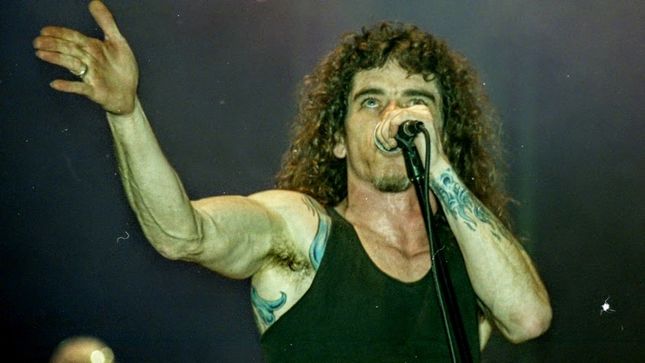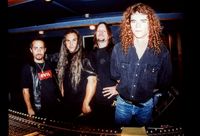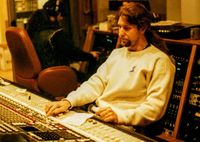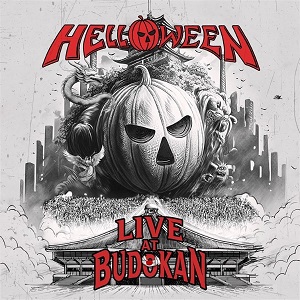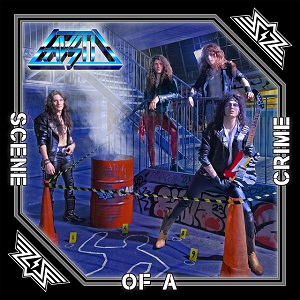OVERKILL’s The Years Of Decay Turns 30 – “We Wanted To Be The A Team”
June 19, 2019, 5 years ago
1989. Thrash metal was riding high commercially as a genre. Metallica had brought it to the mainstream with while others like Megadeth, Anthrax, Dark Angel, Exodus, Death Angel, and Testament were churning out future classics. Three albums into their career, New Jersey boys Overkill would unleash their fiercest, mature, and one that many still say is their best record, The Years Of Decay. With pissed off venomous odes like “Time To Kill” and fan-favorite “Elimination” to the doom like “Skullkrusher” and epic vibes of the title track and “Who Tends The Fire”, The Years Of Decay showed a lot of different character from the band and that they weren’t just a one trick pony. At the Cleveland stop of their Wings Over The U.S.A. Tour, the ever personable frontman Bobby Blitz sat down to reminisce about the record, which would then turn into a conversation about their underrated ‘90s era and the 25th anniversary of their W.F.O. album. Sit back and go on a journey back to ’89 and ’94.
BraveWords: The Years Of Decay was released a year later after Under The Influence. The record is more mature and features excellent production from Terry Date. Did you guys feel like you had to step it up after Under The Influence? What was the thinking going into the record?
Blitz: “I think we we're paying attention first and foremost when it comes to production, Terry as to answer one section of your question, was that he was doing some great work at that particular time. I mean he was one of the top notch producers, had an awesome resume with regard to where it's going and we wanted to play with the big boys. So if you want to play with the big boys, you know what I'm saying, you got to hit the major league pitches? (laughs)"
“I think we learned a lot from Terry because I think we were open to all of his ideas based on his successes. What I do think that happened with the band is that we culminated with regard to the songwriting. We kind of known what we were at that point. I don't think the records prior to that had any specific focus. They just had, let's say just a direction, the Taking Over (1987) record was the wall of sound. The Under The Influence (1988) record had a little bit more a hop and thrash to it. I think Years Of Decay felt themed to me. I remember Bobby Gustafson (former guitarist) being really instrumental with regard to coming in with riff after riff after riff, specifically driven on that point at that timeframe. But I think the rest of us kind of picked up on it and it became, you know, he may have been the inspiration for let's say, the outcome of the record, but for sure everybody stepped up. I mean, Sid Falck (former drummer) came into his own now. D.D. Verni (bassist) finished a majority of those songs with regard to, you know, you can't just show up with a riff and then say the song's done. I kind of jumped on board and I think you're right. I mean, maturity is a dirty word in this genre but I think the other side of it is, is that we culminated into that mature end by making the right decisions with Terry and becoming better songwriters all the way around.”
BraveWords: 1989, thrash was basically at its apex, so was there a competition when seeing Metallica releasing …And Justice For All and these others bands putting out monumental records?
Blitz: “I think so, but it’s healthy competition. I think you’re only as good as what your competition is and of course you can fail. Metallica had for sure set the bar with things like ...And Justice and Master (Of Puppets). I mean, these were groundbreaking records and not just Overkill were aware of it, but, I think everyone else in the genre. I mean, it's not that you sit down and say we got to write that record, but the quality has now been changed. The benchmark is higher. At that particular point they were breaking into the mainstream with regard to making thrash more of a household word. And you didn't want to be left behind, but you didn't want to sit there and write Master Of Puppets or ...And Justice completely, you wanted your own personality. I think that because of, let's say if they were the A Team we were B Team. We wanted to be the A Team.”
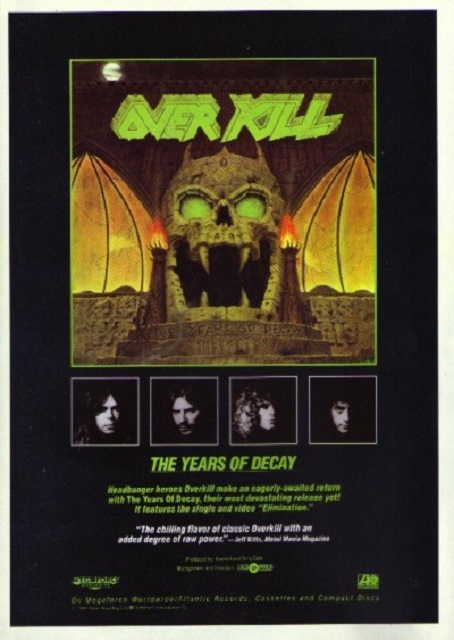
BraveWords: The first half of the record is very pissed off; it feels like a lot of personal angst being brought out. I look at the song “Nothing To Die For” with the opening lyric, “Old enough to know better, too young to care, born on self-destruction going nowhere.”
Blitz: “It’s hard for me to think in terms of the lyrics now because they're 30 years old emotions at that particular time. And those 30 years have instituted a lot of changes from me. I mean I was angry man with a beer in each hand. Well, I still have a beer (laughs). A beer in each hand and a hard on, you know, a hard on for the world. I think that there was something charming about that type of angst if it's real, if it's realism. And I think all of us had that; it was a win or die kind of a thing and I'm sure if there were, they were youthful screams in the dark of angst and I suppose hatred to some degree. But I think that I've always said this in interviews. I think that's why thrash should be a young man's game because it excels with youthful angst, not necessarily always with experience.”
BraveWords: So the album is going at this frenetic pace and all of a sudden this, and I don’t believe you guys have written a longer track, is “Skullkrusher”. Where the heck did this song come from?
Blitz: “Well that's for sure a Gustafson riff. He came down with that riff and even with that title, I mean, he loved that title. He loved the ‘K’ in there. It was obviously worked on with D.D. all the way through. I mean, you don't just come down and say, 'Hey, listen, I've got nine minutes of a song’, you know, you have 30 seconds of a song and it develops over the course of months or through pre-production. I always liked that we started touching on that prior, there was a song on Under The Influence called, (mumbles bass line), it’ll come to me in the interview (‘Drunken Wisdom’ is the song he was referring to), but we started touching on it with that, but had like an acoustic intro and kind of had a thicker kind of a groove, right. 'Skullkrusher' was born of that. It was taken to the next level, it really just gave us the opportunity to infuse our Sabbath influence into that thrash angst.”
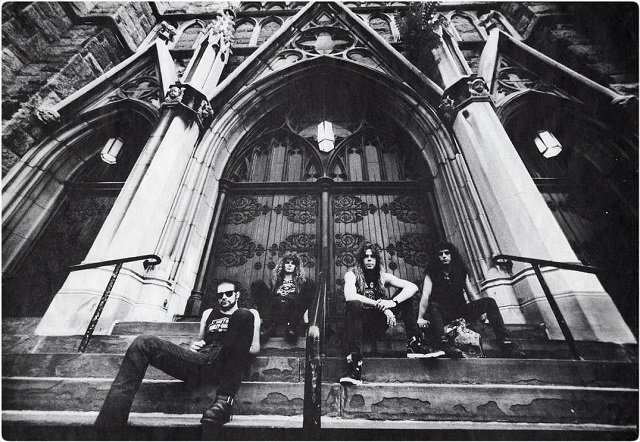
BraveWords: So then the artwork, I feel like “Who Tends The Fire” lyrically fits where you’re going into a tomb like thing. Do you remember the idea behind the artwork?
Blitz: “I don’t honestly remember. I mean 30 years ago, the ideas are fast and furious. It wasn't like I locked every one of those quotes or wants, or arguments it involved, but I do remember we wanted to mimic the shot on the inside. We took the shot of the band on a church, on the church steps that this was supposed to some degree, emulate each of them. You can see stairs coming up to it. It's more of a come in kind of a thing. It's more of that like drawing you in like an ancient religions kind of a thing, like you found a crypt in the jungle, and somebody like Indiana Jones comes across it (laughs). ‘How cool is this fucking thing? You know?’ And that's just my take on it 30 years later. It could have been different. I think if you put the four of us in the same room, the other three would be laughing at my answer right now (laughs).”
BraveWords: This was the last album with Bobby Gustafson. Was there something during the recording of the album and did you know this would be the last with him or did it just kind of happen?
Blitz: “Yeah, just kind of happened. I really don't like discussing the personal lines of it. I don't think it's necessary for the people to know, and I think it's always been one of the things that, you know, D.D. and myself, we've always kind of kept that dirt out of this whole mix and concentrated on the music. Love us or hate us, we're not gossips (laughs). I don't remember during this particular sessions that it was falling apart, but I knew by the time this touring had completed that it was heading in that direction for sure.”
BraveWords: “E.vil N.ever. D.ies” is technically Overkill IV yet doesn’t receive that designation on the album. Why was that?
Blitz: “Just to be ominous. I mean for sure, just to be honest about it, just to make it a little bit less obvious and to have you know, you mention it in two or three interviews and then people are looking for it and they're looking into it deeper, which makes the song I think more attractive and probably one of the coolest songs we'd written at that time and because of the timing of it the speed of it. I also think the arrangement of it; that it goes different places, two to three transitions. Just a cool song of that era. I mean to have bookends on there so opposite with something like 'E.vil N.ever. D.ies' and 'Skullkrusher' I think showed at that particular time that there was diversity that was starting to happen in that span and that it was necessary for us to explore it further. This was our first for a lot of different things, but it was also to some degree was our last for a lot of different things (laughs).”
BraveWords: Fans and critics still see this album as the pinnacle of your career. Would you agree?
Blitz: “Well, they can never forget their first lay (laughs). It’s like the first time you’re in there, you’re like ‘oh God, I want more of this’ and you chase that for the rest of your life (laughs). I kind of equate it to playing on the road. I mean, the first time I got high doing this was before the band was signed and I been chasing that fucking high now for close to 44 years and not for a lack of satisfaction, but still thinking I can get more of it. And I think if people identify with things, that's fucking great. You know, you have your favorite team, but you can love your Cleveland Indians. But for fuck's sake, you remember when they got their rings and you know what I mean? Sometimes you go, ‘oh my God, they're at the bottom of the barrel.’ But now in recent years, they've been up on top and you love them a little more because of those seasons. But it doesn't mean in general that you now dislike them because they're at the bottom of the division. So your opinion doesn't necessarily change it. But I think also with this music, you identify for instance, to that season or this record. I think that's just a human condition.”
BraveWords: With this album and especially the early ones; these records have not been reissued at all. Is that ever going to happen? Will we see a Years Of Decay 30th anniversary edition?
Blitz: “Oh God, talking to Atlantic Record is like talking to a fucking dictatorship. First of all they don’t know who we are when we call them, but they still have the product as active. We've gone through lawyer requests, letters, management, D.D. and I manage the band, but for a few years we got a manager on specifically so he could get in there and get those records so we could do a rerelease just as they were, or maybe do a remix or maybe do a remaster, but bring them up to the current day with regard to sound or fuck, just leave history alone, but make the fucking record available especially because these are not shit thrash times. You know, these are pretty good. Everybody says to me, I mean, I meet a guy in a Feel The Fire shirt and it's now gray instead of black who's bellies hanging out and is like 'it isn't like the old days.' I'm like, 'dude, you better pay attention or you're going to miss the present stuff out here.’ I think those Atlantic records would, you know, hey, maybe they wouldn't make hay, but the other side of it is, is that they're still valuable to too many people.”
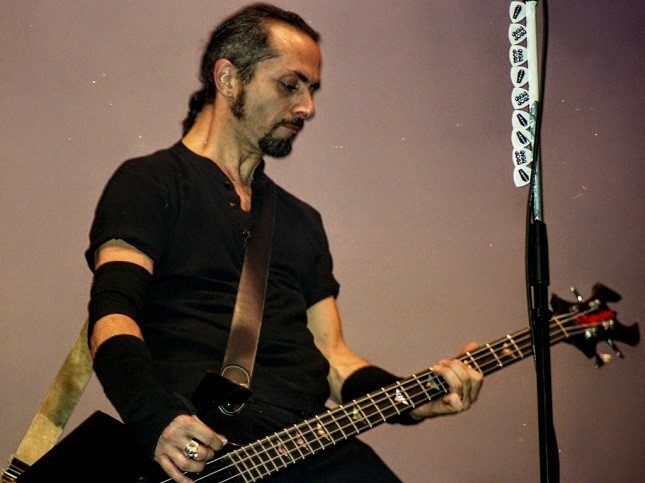
BraveWords: A question out of curiosity, the Overkill band name – was the spelling supposed to be two words and then became one word?
Blitz: “It was always one word, but the way the logo was written when we first used the bat in the center, the head would be in the center and it was perceived as two words. So then we had done it as one word prior. We had done it as one word after, but somebody for instance picked up on that and then it became, ‘oh, this must be two words.’ And it became, I don't know, the talking point somewhere. And then in some advertisements, promotions, publicity, and even from record companies had it. It's like they had it as two words, not one word, but too late because it's printed (laughs).”
BraveWords: To shift gears a bit, an underrated album from the band is W.F.O., which is turning 25 this year. Any quick thoughts on that?
Blitz: “We’re actually playing a couple of cuts from that album. Kind of the unpaid attention to ‘90s.”
BraveWords: Yes, I feel like it’s definitely been so overlooked for whatever reason.
Blitz: “Let me tell you something. Just the scene in general, I mean it's one of my proudest eras of this band, this mid to late '90s, when metal kind of became a dirty word. You know, this was like passé with regard to the hipsters. So that era they were moving into the Seattle sound and there was a lot of metal bands went home and this band said, 'fuck it.' We never did it so that we can be bigger than Seattle. We didn't even know who Seattle was with regard to their side. We want to do this. And I think that that record has that angst on it again, that real natural angst, like, 'who the fuck are you telling me?' (laughs)"
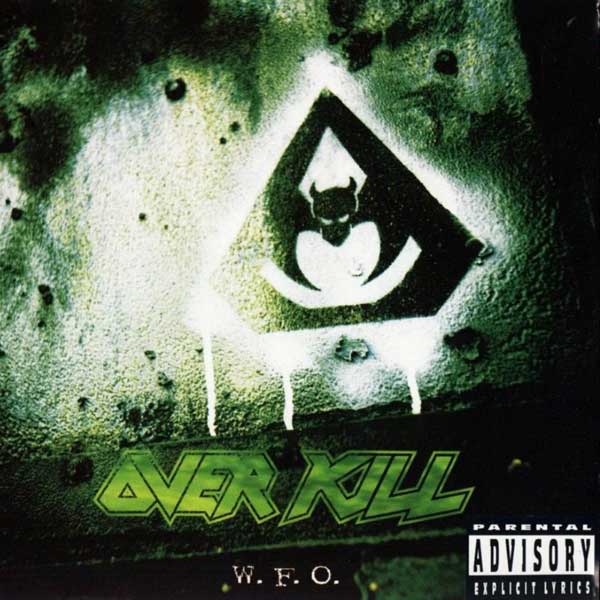
BraveWord: What’s with the heavy bass sound that’s very loud in the mix?
Blitz: “We started mixing that record ourselves and that's the D.D. Verni clank on ten and he was always an out front instrument. And that's the record where he's the most out front and it's one of those, as I can remember that whole era, what we're doing is scooping the guitars out, just making, I think it was a Terry Date thing, used to call it the teenage smile because you would take all the mids out of it, like lo-end, hi-end and it made this spot right in the center for D.D. and we just kind of went over the top with that. And I remember doing interviews back then after W.F.O. and I'd say it sounds like a guy smashing a fucking 55 Chevy with a rubber hammer (laughs). I never have a problem with it. I mean it's just kind of a different mixed record. Doesn't sound like anybody ever, love it or hate it, it's ours.”
BraveWords: Then the record has that weird track sequencing at the end with all mini two second long tracks which then finally culminates with two cover tracks. The CD has 99 tracks of which 12-97 are blank. Track 98 consists of ten minutes of silence after a jam consisting of Sabbath’s “Heaven And Hell”, Judas Priest’s “The Ripper”, and Jimi Hendrix’s “Voodoo Child”.
Blitz: “They were all up in the studio in Connecticut and they were jamming ‘Crosstown Traffic’ by Hendrix and ‘Heaven And Hell’ with Dio. There was a whole bunch of stuff and I would just keep recording and I remember I was smoking at the time and I was in this little closet isolation booth and I think it was Rob Cannavino that said to me, we were all laughing and everything, and then I opened the door of the isolation booth and out came this big waft, the smoke filled the air and beer cans rolled out (laughs). So if we were having that much fun, maybe it was our first attempt somewhere in all of the seriousness to show that we also have a good time doing this. I mean we're guys who like to laugh obviously and have some fun doing shit. So we always rolled tape through those sessions and then we decided, ‘hey, why not do a quick mix on them? We'll throw them in at the end’. Track 99 I think it was.”
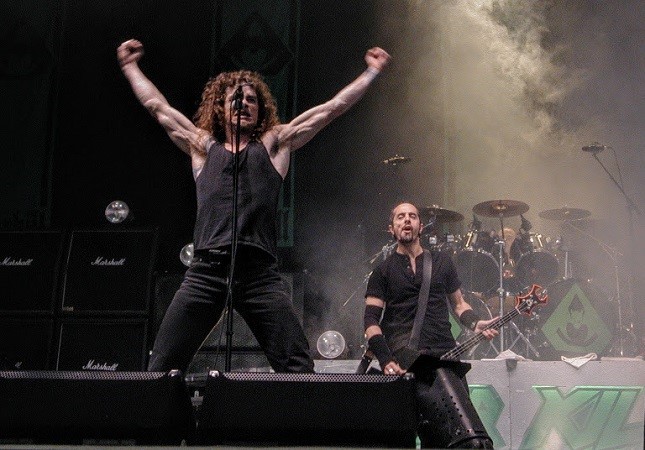
BraveWords: I remember ripping the CD to my computer and it was a pain in the butt. At that time period some bands were becoming more accessible and commercial, while others chose a death metal route. Did you guys ever think about doing anything like that or was it no, stick to your guns?
Blitz: “I don’t think we ever fought about it consciously. The record before W.F.O. was I Hear Black. The finished product there was a result of having new writers in the band. Merritt Gant (former guitarist) and Rob Cannavino were younger guys than D.D. and myself. D.D. and I knew what we liked to do when we didn't do a lot of things well, but we did a few things well, but these guys were more about that era of music and they wanted to write or…you know, we were going to have problems again and it was too soon to have problems and they were great guys, don’t get me wrong, and they started contributing at high levels to the direction and the music. So I don't think there was ever a conversation about heading in that direction, but I think the fact that we had guys in their young 20s bringing new influences and new influences into the band made it more Sabbath-esque than we ever were. I don't dislike the record. I mean, don't get me wrong. I really like the record. I think it's a little underdeveloped. So I think that that's the only departure we had, but I think the departure was more natural than talked about.”
Overkill’s new album, The Wings Of War, was released February 22nd through Nuclear Blast and recently finished their Wings Over The U.S.A. Tour with Death Angel and Mothership. Scroll through the gallery to check out some classic and current pics of the 'Kill!
(All photos in the gallery by Mark Gromen except the Gant / Cannavino shot by Jeff Tisman)

